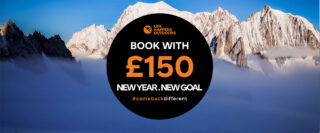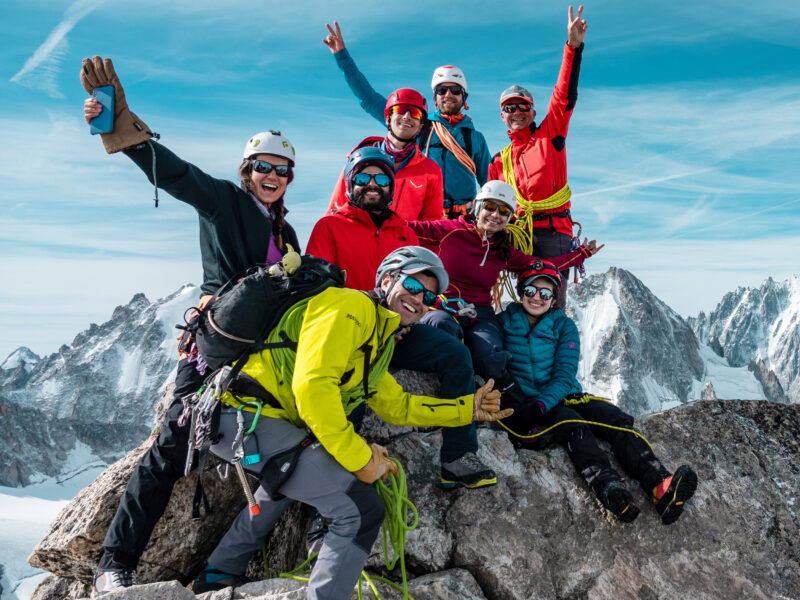BY Pranav Mehta | January 30 2024
Taking The High Road: Revelations at Elevation
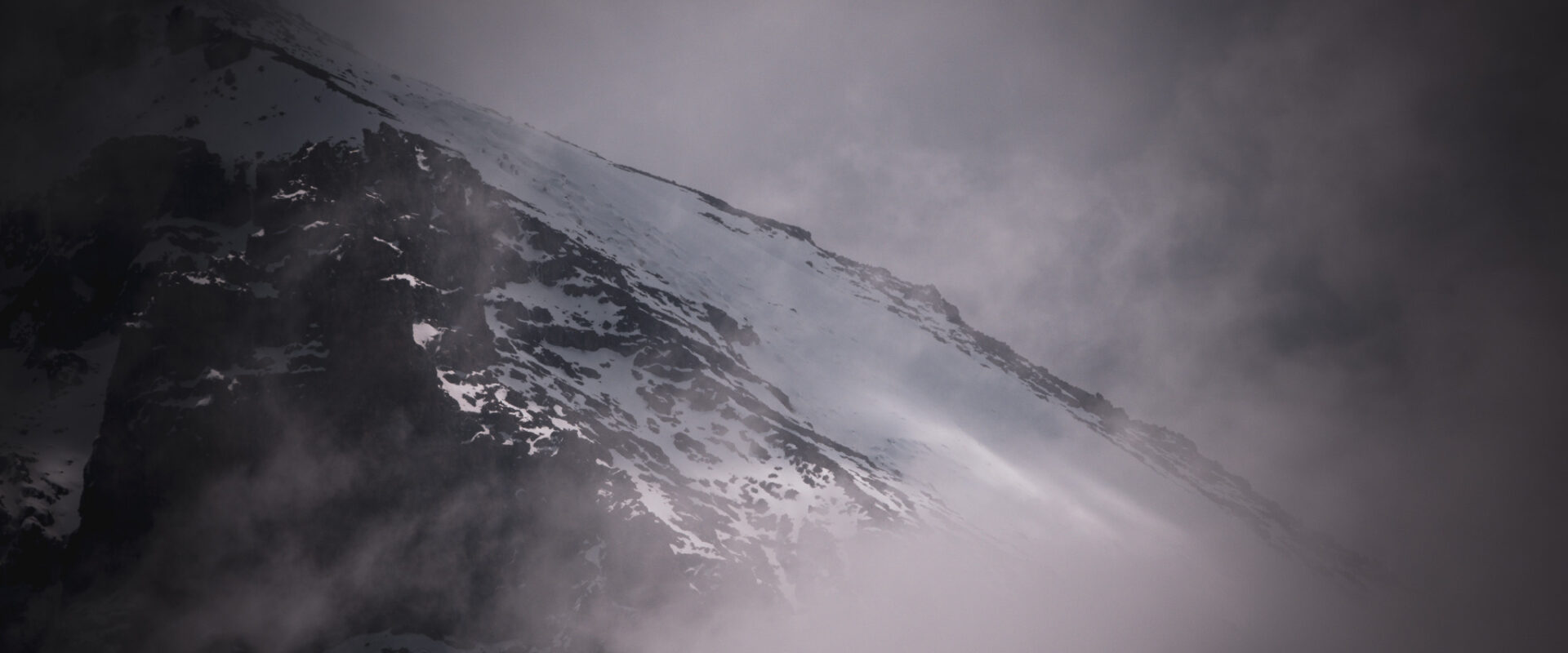
I don’t know if you’ve ever been woken up by a high-altitude hoedown, but trust me, it’s an alarm you can’t snooze. It’s 12AM on January 1st at Barafu Camp, 15,000 feet above sea level, where the air is as thin as the tent fabric separating us from a New Year’s party like no other. Around me, I can hear climbers from every corner of the globe dance and sing in a defiance of the mountain’s solemnity. It’s a bizarre, beautiful juxtaposition—joy and revelry set against the stark, majestic backdrop of Africa’s tallest peak. Lying in my tent, swaddled in every piece of clothing I own, my breath turns to mist in the cold air. The enormity of what lies ahead hits me—an 8-hour climb to the roof of Africa. My emotional cocktail is heady; the awe of the challenge, the nervous anticipation of the journey, and a fierce, unwavering determination to earn the sunrise from the highest point I’ve ever set foot on. I unzip the flap, step out of my tent. The enormity of what lies ahead hits me. A sinuous ribbon of headlamps undulates up the mountain’s spine, stitching the night sky to the earth.
Sisyphus was condemned to eternally roll a rock up the hill as a form of divine punishment; my ascent up Kilimanjaro was a completely voluntary act of self-inflicted torment. I was convinced my expedition was a grand exercise in self-hatred—a symphony of strained muscles, multilingual cursing, and a passionate desire to question my life choices. Yet, over the course of eight days, what began as a solitary quest for self-discovery transformed into an unintentional anthropological study. My problem statement was simple: what ties a motley crew of 12 thrill-seekers from different parts of the world together at altitude?
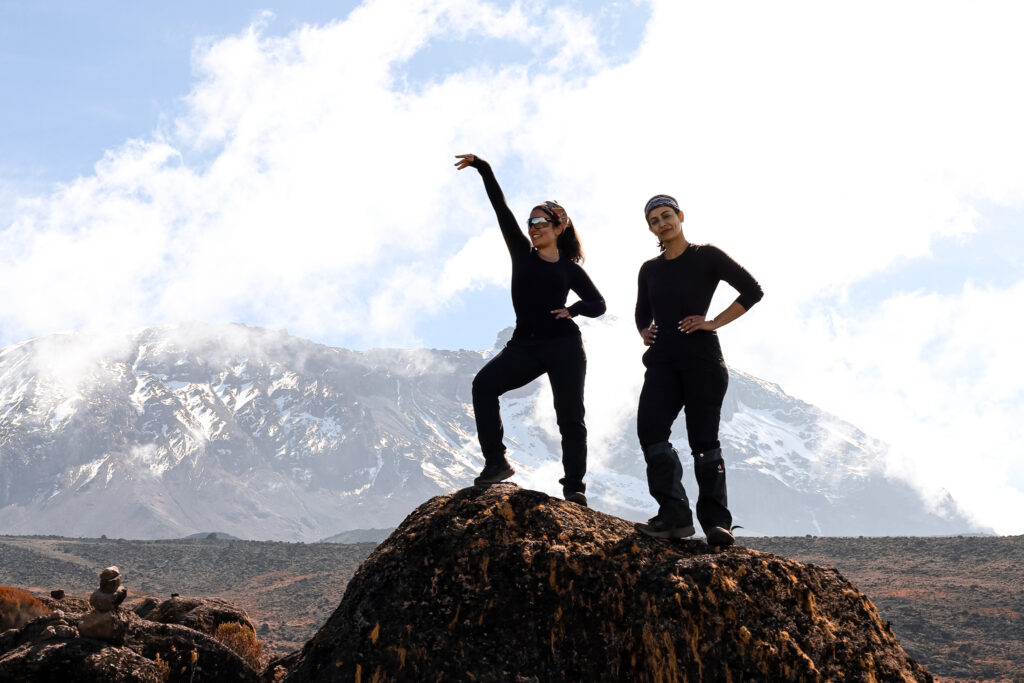
Food is a universal language, more so on a mountain. Every night, we devoured a literal melting pot of cultures. Dubbed the “Kilimanjaro plate”, our slapdash array consisted of rice, veggies, and an eclectic soup-of-the-day, spanning the likes of cucumber, potato, and butternut squash, emblematic of the mountain’s ever-surprising culinary repertoire.
It soon became evident that each member of our diverse group harboured a collective desire—a longing to indulge in the triumvirate of pizza, pasta, and burgers upon our eventual descent. This shared aspiration offered a fascinating lens through which to examine the concept of culinary cultural imperialism and its subsequent global proliferation. Across cultures and continents, these offerings had established themselves as symbols of gratification, evoking a sense of familiarity and universal appeal. They embodied the legacy of Western culinary influence, tracing their origins to an era when globalisation began reshaping gastronomic landscapes. In the midst of our high-altitude conversations, where linguistic and cultural barriers often lingered, the collective yearning for these iconic Western dishes somehow became a testament to the enduring power of shared culinary experiences. Yet, what truly bound us as a dishevelled, ragtag family was the mindful act of coming together around those steaming bowls. Our shared meals became our sanctuary. We immersed ourselves in conversations both trivial and profound, a reminder that sometimes, the quickest way to a person’s heart is indeed through their stomach—especially when that stomach is perpetually empty.
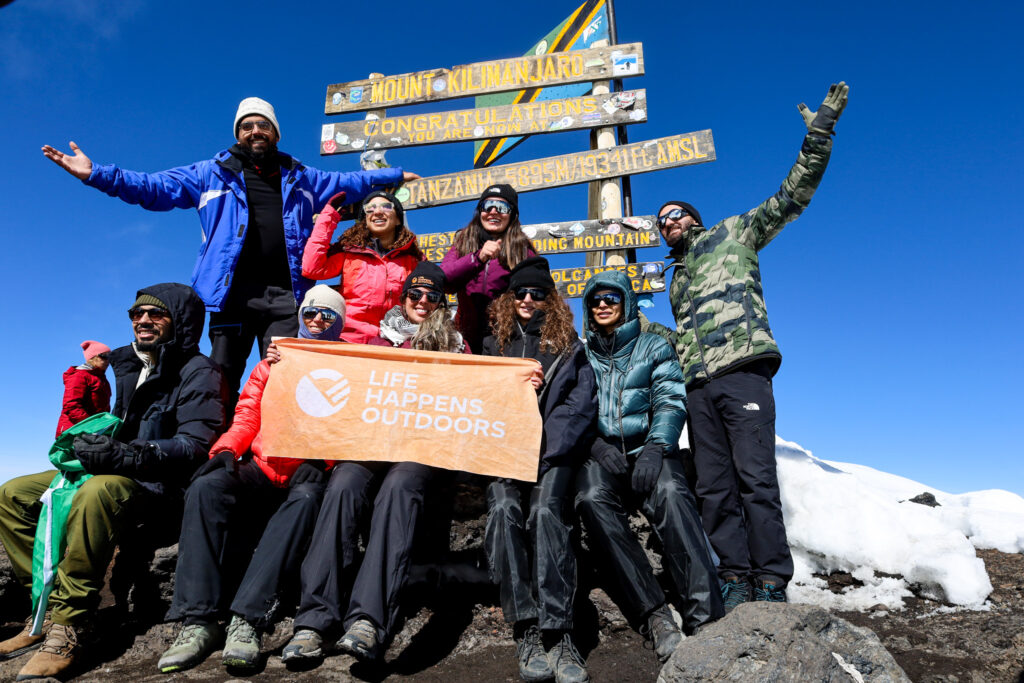
Mountaineering is a relentless tango with water, both inside and outside our bodies. The meticulous art of waterproofing became a daily ritual in comedy and futility. It begins with the careful arrangement of our daypacks, ensuring that ponchos and rain-pants were perched conveniently at the top. Every other item, from clothes to gadgets, was carefully ensconced within a labyrinth of plastic bags, transforming our backpacks into plastic-encased treasure troves. Come rain, and we would drape ourselves in layers of rain gear, soldiers in a meteorological battle against a clear winner, before sheathing our bags in their waterproof covers. It was a tightly choreographed dance of plastic rustling and zippers closing in unison. Yet, for all its painstaking precision, it was a deeply silly endeavor—a gesture of defiance against nature’s capricious moods, as if our elaborate preparations held the power to sway the heavens. On the inside, we were prisoners of homeostasis, existing between sippy sippy breaks and pee pee pauses. Standing together, water bottles in hand, these brief respites mirrored everyday watercooler conversations at work. The Tanzanian rainforest, true to its name, brought literal and metaphorical rain—challenges that both drenched and cleansed. Between gulps, we collectively acknowledged the absurdity of basic bodily functions, often taken for granted at sea level, becoming pivotal points of our shared experience.
In Swahili, pole pole means slowly, and on Kilimanjaro, it’s a mantra. This philosophy of taking things slow became the rhythm of our journey. As we acclimated to the thinning air, our conversations, too, attained levity. “I worked for one of the largest drone shows called Noor Riyadh,” a fellow climber declared, his tone so earnest it commanded the tent’s attention. “Noor means light, and Riyadh means Riyadh.”
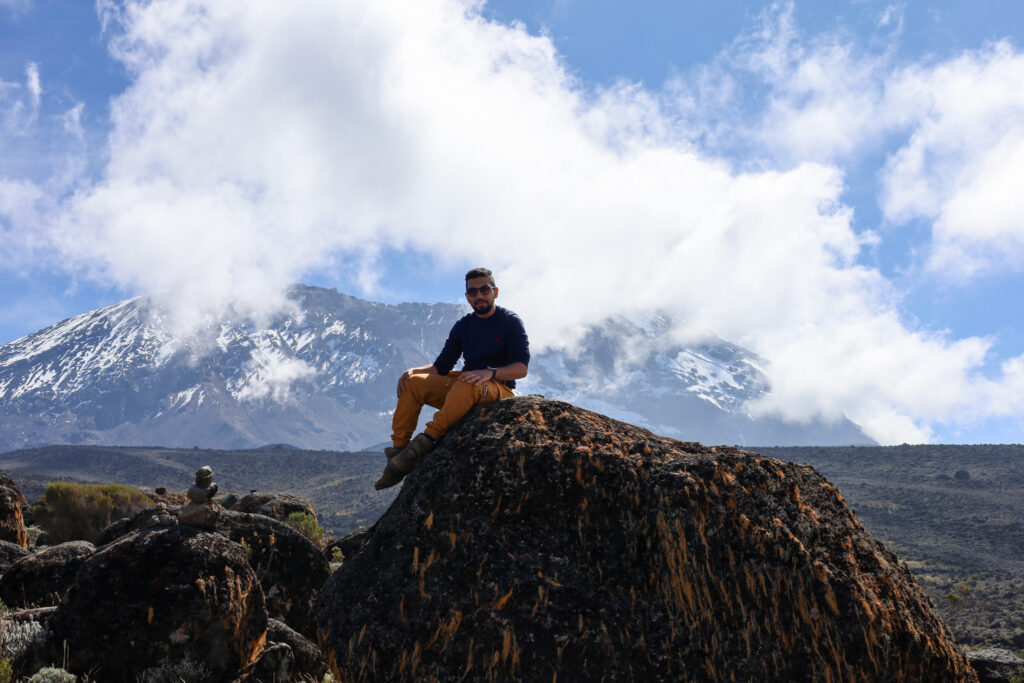
In the expansiveness of the mountain, our silly stories found a receptive audience. Each day, as we gathered around our Michelin-starred meals, the air buzzed with excitement, as we would pick an unsuspecting sucker and unpack their love lives in sordid detail. The tales would follow arcs that would put the juiciest Wikipedia indices to shame: Early life; Warning signs; Controversies; Road to recovery. Our shared state of dishevelment, having foregone showers for eight days, only added to the sense of intimacy. On a mountain, surrounded by strangers who would soon become confidants, the vulnerability of opening up felt surprisingly weightless. Gossip, I found, was a form of voyeurism that we all indulged in willingly and with a sense of shared complicity. It was in these candid displays of fallibility that the true essence of a person emerged, stripped of the curated perfection that social media often demanded. Our shared experiences of stumbling and faltering through the trials and tribulations of modern love served as a stark counterpoint to social media’s insistence on showcasing only our most pristine and flawless selves at sea level.
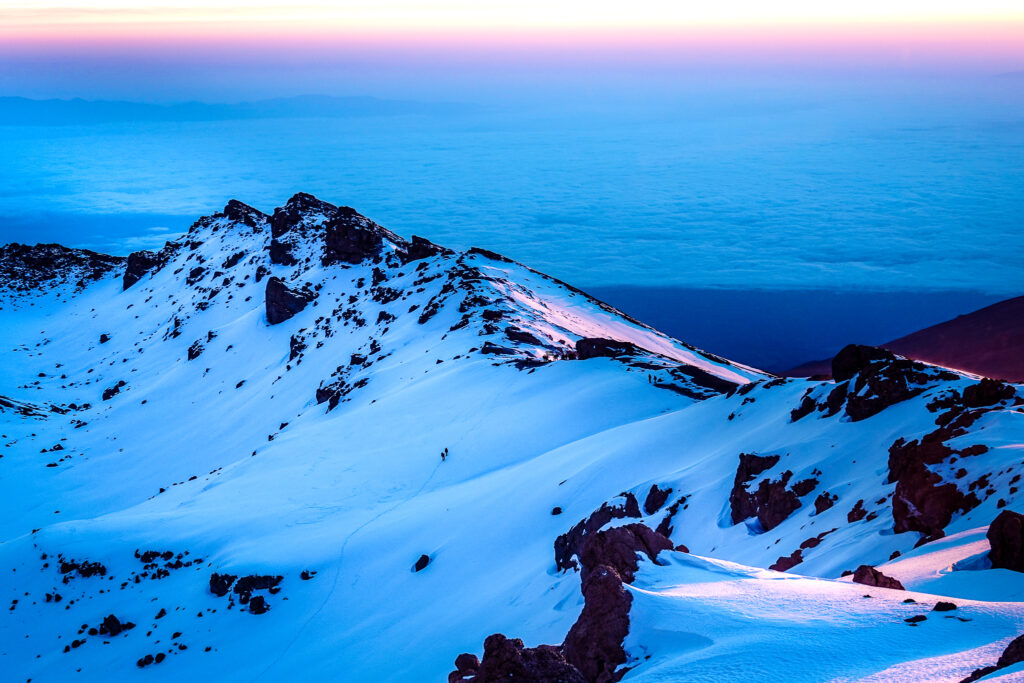
As night fell on Kilimanjaro, the African sky transformed into a dazzling display of stars and constellations. Lying beneath this celestial magic show, our conversations shifted from the earthly to the ethereal. Kilimanjaro, a behemoth standing tall at 19,341 feet, offered us a front-row seat to the universe. In the grandeur of the night sky, our differences seemed trivial, our bonds strengthened by the shared experience of wonder. That night, we spoke of dreams and fears under the watchful gaze of the stars.
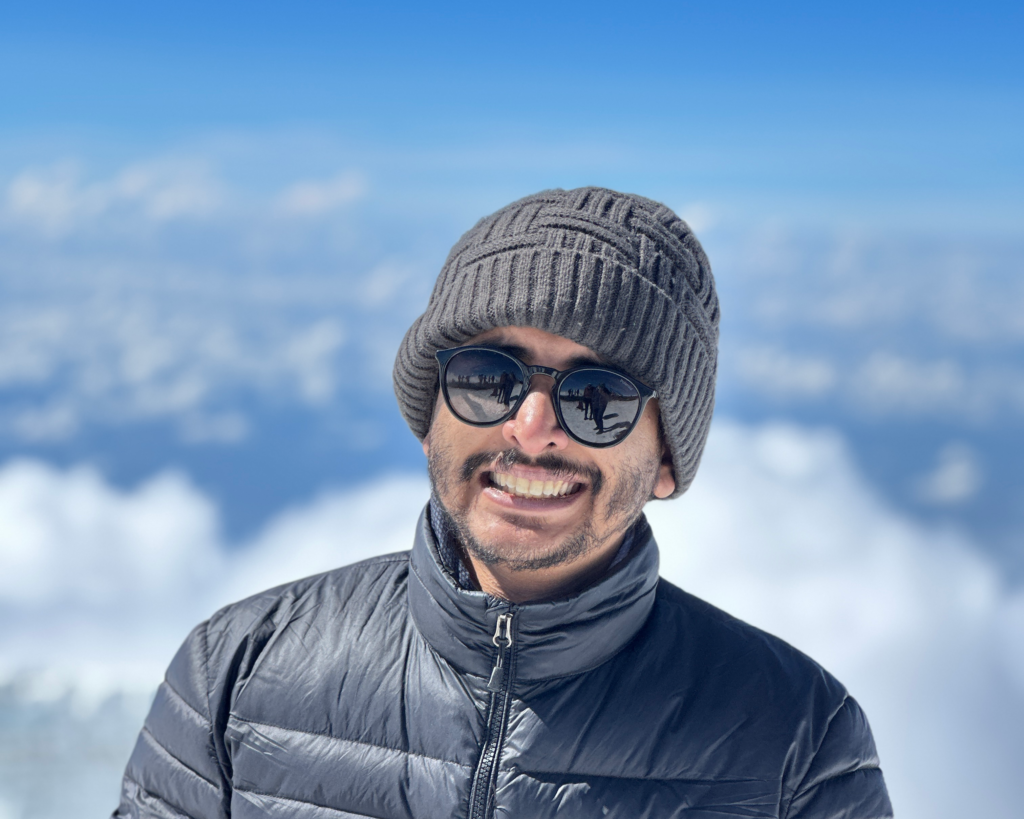
Any attempt to retcon depth in our mountain adventure seems a bit silly. After all, life is not always steeped in grandiose revelations and transformative moments. As we descended, our boots once again finding solid ground, it became abundantly clear that our shared mountain odyssey had not wrought a profound transformation upon us. On our first night back in civilization, we gleefully reunited with our screens, rejoiced at the sight of WiFi signals, and clinked Coca-Cola bottles in celebration of our return to modernity. I found a strange comfort in the realization that the transient camaraderie we had experienced on Kilimanjaro was not a mandate for perpetual togetherness.
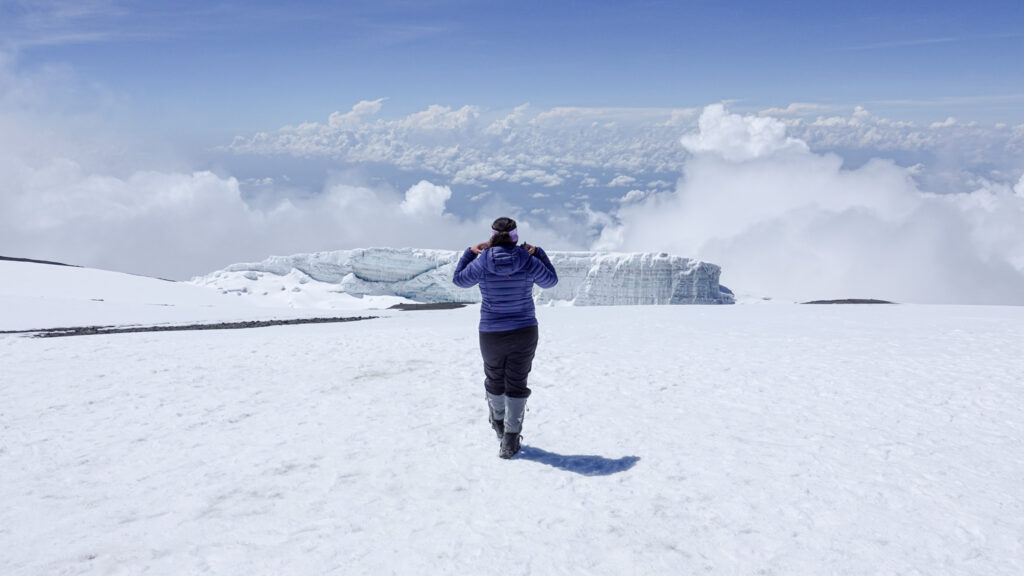
What tied a motley crew of 12 thrill-seekers from different parts of the world together at altitude? I don’t know. Maybe, it was our collective pursuit of the three horsemen of fulfilment—food, water, and gossip. Or perhaps, it was the unspoken acknowledgment that the human experience is fundamentally absurd, delightfully peculiar, and uniquely ours to embrace.
About Life Happens Outdoors
At Life Happens Outdoors, we believe in the power of nature to transform lives. As proud members of the Adventure Travel Trade Association (ATTA) and the World Travel & Tourism Council (WTTC), our team of certified guides and outdoor professionals is committed to the highest standards of safety, sustainability, and excellence.
Discover more about our story and mission on our Meet LHO page, or explore our curated adventures such as the Tour du Mont Blanc Trek, the Climb of Kilimanjaro, and Chasing the Northern Lights.









